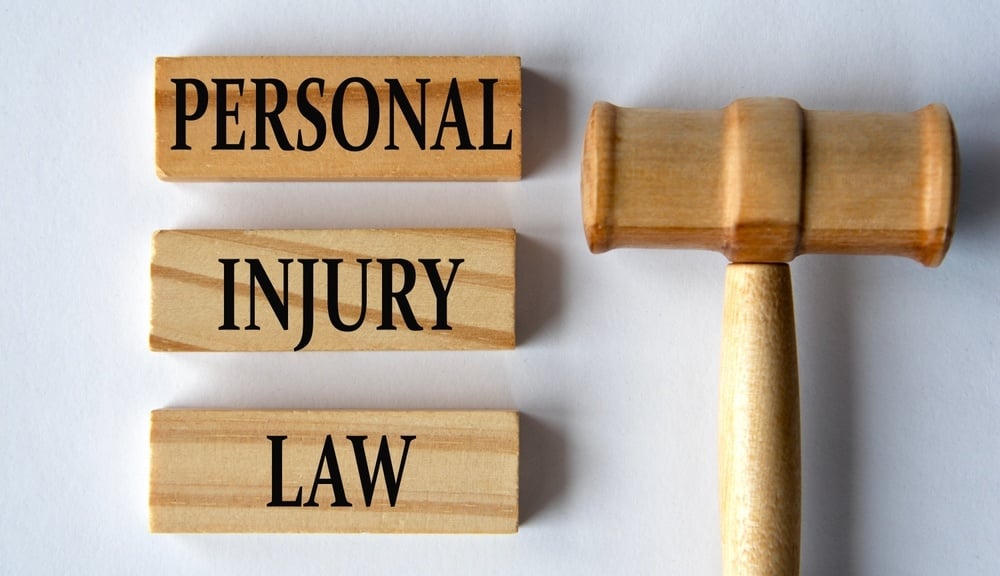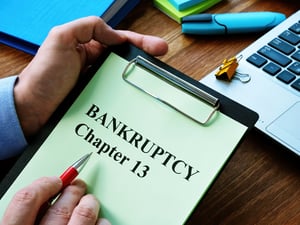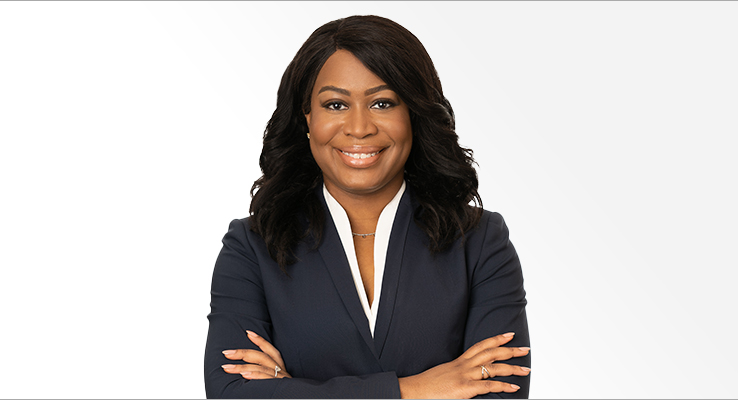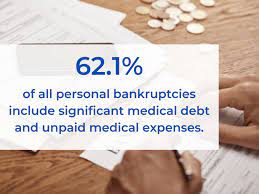Personal Injury Lawsuits in a Chapter 7 Bankruptcy
In most cases, personal injuries settlements received prior to filing for Chapter 7 bankruptcy will not be included in the bankruptcy estate. This means that you can usually keep the money. If the settlement was received following filing, it could be subject to claims by creditors. It’s crucial to consult with a bankruptcy attorney in Minnesota to understand how your specific situation may be affected.
When filing for Chapter 7 bankruptcy in Minnesota, individuals facing overwhelming debt often wonder how their assets, including a personal injury settlement award, will be impacted. Understanding the relationship between personal injury lawsuits (PILs) and bankruptcy is important to protect your financial future. There are two important points to know about Chapter 7 bankruptcy.
Eligibility
Not all filers will qualify for Chapter 7, since the eligibility rules are strict. The criteria are based on income and some people will qualify if they fall below the state median income threshold. Other debtors must pass the means test, which assesses income in relation to Minnesota’s median income levels and monthly expenses.
Liquidation
Chapter 7 bankruptcy is often referred to as “liquidation bankruptcy” because it allows individuals to discharge most of their unsecured debts by liquidating non-exempt assets. In Chapter 7, a trustee manages the case of the debtor. The trustee’s job includes selling non-exempt assets in order to pay creditors. The state and federal laws allow for exemptions that will prevent many debtors from liquidating their assets. Once the liquidation process is complete, most of the debtor’s debts are discharged, giving them a fresh financial start.
For those who have suffered a personal injury and received or are anticipating a settlement, it’s important to know how that settlement will be treated during bankruptcy.
Overview of Exemptions in Chapter 7 Bankruptcy
Exemptions play a vital role in Chapter 7 bankruptcy, as they determine what property a debtor can keep. Debtors in Minnesota can choose between federal bankruptcy and state-specific exclusions depending on which offers the best protection. These exemptions include allowances on homes, vehicles and household goods. Minnesota’s state-level exemption statute protects many assets, including your homestead and certain wages and public benefits. Under federal law, there are specific provisions to exempt part of a personal injury settlement as well.
Choosing between Minnesota state exemptions and federal bankruptcy exemptions is a key decision that could affect how much of a personal injury settlement you can keep. Many debtors opt for federal exemptions because of the specific protection for personal injury claims.
Are Personal Injury Settlements Exempt From Bankruptcy?
The answer to this important question depends largely on the details of the settlement and the exemptions chosen in your bankruptcy petition. Personal injury settlements are generally considered part of the bankruptcy estate, meaning they are subject to liquidation unless protected by an exemption.
However, federal regulations provide specific protections for certain types of personal injury claims in a bankruptcy case. Debtors in Minnesota who use federal bankruptcy exemptions may shield a portion from being used for paying creditors. SS 522(d)(11)(D)
Under the federal bankruptcy exemptions, personal injury cases are protected by a specific exemption found in the US Bankruptcy Code. The federal personal injury exclusion is crucial for personal injury cases that involve significant medical bills or compensation due to long-term disabilities. It ensures that debtors can retain the funds they need for their recovery, rather than losing it all to creditors in the bankruptcy process.
While the federal personal injury exemption has specific limits, it can be combined with other exemptions to maximize protection. Debtors can use the “wildcard exemption” to protect all types of property including personal injury settlements up to a certain limit. Working with an experienced bankruptcy attorney in Minnesota in conjunction with your personal injury lawyer is essential to ensure that you keep as much of your settlement as possible.
Keeping Other Property in Chapter 7 Bankruptcy
One of the main concerns for individuals filing for Chapter 7 bankruptcy in Minnesota is whether they will lose their property, as separate from proceeds of a personal injury suit. Chapter 7 bankruptcy requires liquidating non-exempt property to pay creditors, but many people are able to keep their property because of exemptions. In Minnesota, debtors can choose between federal or state exemptions, and making the right choice can significantly affect what property remains protected.
Understanding Exemptions in Minnesota
Under Minnesota’s state exemptions, you can keep a portion of your homestead, vehicles, household items, and other essential assets. Similar protections are available for those who choose federal bankruptcy exemptions. This could include bank accounts, additional household goods, or a portion of personal injury settlements beyond the injury exemption. This could include bank accounts, additional household goods, or a portion of personal injury settlements beyond the injury exemption.
Limits on Personal Property Exemptions
When it comes to personal property such as vehicles or household goods, each has limits on how much value can be exempted. Most filers do not own property above these values and can keep the items after bankruptcy. What if I’ve already spent the settlement money when I file for bankruptcy?
The funds may have been used to pay medical expenses, settle debts, or cover living costs. This raises the issue: How will a bankruptcy court treat a settled settlement in a Chapter 7 matter? It’s important to remember, however, that transparency is crucial in the bankruptcy process. If the money was spent on necessary expenses such as medical care or paying bills, it is unlikely to cause any issues. If you are filing for bankruptcy in Minnesota, it is important to disclose any financial transactions. Even if you have spent the settlement money, failure to disclose it can lead to complications and even dismissal of your case. Working with a bankruptcy lawyer ensures that everything is handled properly, and any spent funds are accurately reported.
Duty to Disclose Personal Injury Claims in Chapters 7 and 13 Bankruptcies
When filing for bankruptcy–whether Chapter 7 or Chapter 13–debtors must disclose all assets, including ongoing or potential personal injury claims. Failure to disclose a claim could have serious legal consequences. In Minnesota, the duty to disclose applies even if the personal injury lawsuit hasn’t been settled or if the debtor is only considering filing a lawsuit.
Treatment of Personal Injury Claims in Chapter 7 Bankruptcy
In Chapter 7 bankruptcy, once a personal injury claim is disclosed, the bankruptcy trustee may decide to pursue the claim on behalf of the estate. The bankruptcy trustee may decide to pursue a personal injury claim on behalf of the estate in Chapter 7 bankruptcy after a claim is disclosed. SS 522 (d)(11). The trustee’s role is to maximize the value of the bankruptcy estate for creditors, so keeping your personal injury claim protected through proper exemption planning is critical.
Handling Personal Injury Claims in Chapter 13 Bankruptcy
In Chapter 13 bankruptcy, which involves a repayment plan, the treatment of personal injury claims differs slightly. The debtor has more control over their personal injury case, even though the claim still needs to be disclosed. Any settlement or award may need to be contributed toward the repayment plan, depending on the specifics of the case and available exemptions.
The Importance of Full Disclosure
In both Chapter 7 and Chapter 13 cases, full disclosure of personal injury claims is required by law. If you try to hide a claim, it could lead to the loss of dischargeable obligations or even legal penalties. Talk to a Chapter 7 attorney about your personal injury claim.
In Minnesota, filing for Chapter 7 while having a personal lawsuit or settlement is a complex process.
Knowing how personal injury settlements are treated in bankruptcy and knowing which exemptions apply is crucial for protecting your assets. Understanding how personal injury settlements will be treated in bankruptcy, and which exemptions apply, is essential to protecting your assets. SS 522(d),(11),(D) allows debtors to keep a portion of the settlement. This allows them to recover financial without losing compensation for injuries. It’s always a smart idea to consult a Minnesota bankruptcy attorney before filing for bankruptcy. They can help you understand your legal options and guide you throughout the process. We can work with you and your personal injury lawyer to develop a solid legal strategy. You can visit us online or call 320-252-0330 to schedule a free consultation and start your journey toward a brighter future.
FAQS About Personal Injury Lawsuits and Chapter 7 Bankruptcy
Can bankruptcy stop a personal injury lawsuit?
No, bankruptcy cannot typically stop an ongoing personal injury lawsuit. The bankruptcy filing may affect the outcome of a lawsuit. If you receive a settlement or judgment after filing for bankruptcy, the funds may be subject to creditor claims.
What three things are not dismissed with Chapter 7 bankruptcy?
Three common things that are not typically dismissed in Chapter 7 bankruptcy include child support, alimony, and some student loans. These debts are often considered non-dischargeable due to their specific nature and public policy implications.
How much money is protected in Chapter 7?
The amount of money protected in Chapter 7 bankruptcy depends on various factors, including your state’s exemptions and your specific financial situation. Federal law allows a certain amount to be exempted from bankruptcy. This includes equity in your car, home, and other personal property. However, state laws may provide additional protections.
Can the IRS take my personal injury settlement if I owe back taxes?








